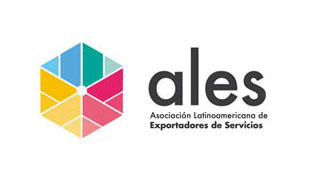


 The purpose of the analysis is to provide a tool to incorporate the tax aspect in the economic variables of the decision process of exporting services. Failure to consider the tax factor in the initial analysis of the service cost may involve having to bear higher costs not covered by taxes and significantly affect the profitability of the business.
The purpose of the analysis is to provide a tool to incorporate the tax aspect in the economic variables of the decision process of exporting services. Failure to consider the tax factor in the initial analysis of the service cost may involve having to bear higher costs not covered by taxes and significantly affect the profitability of the business.



 The development of a harmonized methodology provides harmonized guidelines for obtaining statistics on trade of services in Latin America . Not to mention that the methodology is based on best practices of developed countries, which implies doing surveys. As there are different levels of statistical development, two types of surveys are available for collecting information.
The development of a harmonized methodology provides harmonized guidelines for obtaining statistics on trade of services in Latin America . Not to mention that the methodology is based on best practices of developed countries, which implies doing surveys. As there are different levels of statistical development, two types of surveys are available for collecting information.



 The Regional Common Nomenclature (RCN) was created to reflect the actual services trade that occurs in the region. Thereby, it has become a fundamental input for gathering comparable statistical information on trade in services. The RCN was built on the W120 nomenclature used in GATS commitments and trade negotiations. However, given the dynamics of the market, it reaches further disaggregation.
According to the comments and opinions expressed by the ALES members and experts on services, the proposal has been an "innovative step," given that thanks to the achievements, Latin America became the first in the world in shaping a universal language that identifies the different tasks that are involved in regional services trade. Thereby, ALES members have shown strong interest in putting the common nomenclature into practice, especially Chile and Peru.
The Regional Common Nomenclature (RCN) was created to reflect the actual services trade that occurs in the region. Thereby, it has become a fundamental input for gathering comparable statistical information on trade in services. The RCN was built on the W120 nomenclature used in GATS commitments and trade negotiations. However, given the dynamics of the market, it reaches further disaggregation.
According to the comments and opinions expressed by the ALES members and experts on services, the proposal has been an "innovative step," given that thanks to the achievements, Latin America became the first in the world in shaping a universal language that identifies the different tasks that are involved in regional services trade. Thereby, ALES members have shown strong interest in putting the common nomenclature into practice, especially Chile and Peru.




















































